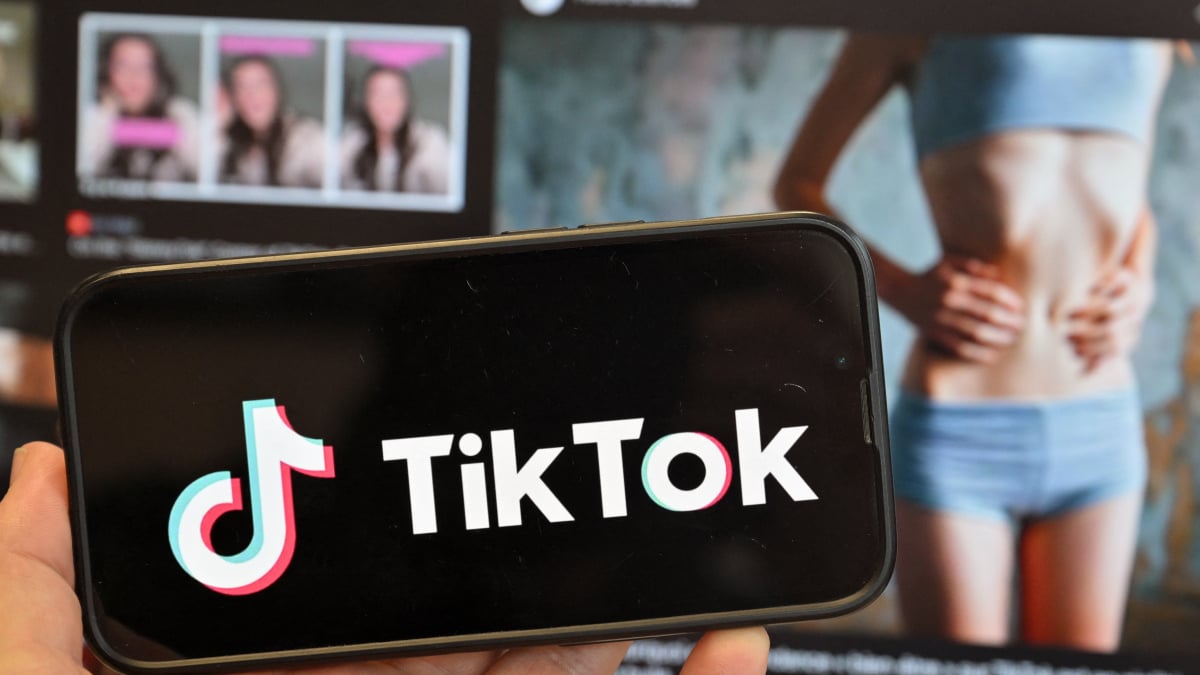On June 1, TikTok banned the #SkinnyTok trend and hashtag on the app worldwide after receiving pressure from European lawmakers, according to Euractiv.
SkinnyTok glamorizes eating disorders and could influence people — primarily young women — to emaciate themselves in order to access an unrealistic beauty standard.
Unfortunately, just because the hashtag is banned from TikTok doesn’t mean the content is particularly difficult to find. As Mashable has previously reported, content moderation rarely changes the content of our conversations, even if it succeeds in changing some of our vocabulary. Instead of suicide, users say “unaliving;” instead of sex, they says “seggs;” and instead of porn, we get corn emojis. In the same way, though SkinnyTok may be gone, users can still find the same content under new names. Similar content is also constantly pushed on FitTok, TikTok’s community for fitness content.
This ban comes after policymakers in Brussels and Paris looked into SkinnyTok and found it was full of young women, many of whom looked emaciated, posting extreme diets and weight-loss tips.
“[We] have blocked search results for #skinnytok since it has become linked to unhealthy weight loss content,” TikTok spokesperson Paolo Ganino said in a statement Monday, according to Politico. Ganino added that the ban is part of a “regular review … to address evolving risks” on TikTok.
Now, when you search for the hashtag, you’ll be met with a page that reads: “You’re not alone.”
Mashable Trend Report: Coming Soon!
“If you or someone you know has questions about body image, food, or exercise — it is important to know that help is out there and you are not alone. If you feel comfortable, you can confide in someone you trust or check out the resources below. Please remember to take care of yourselves and each other.” The page also includes a number for the National Alliance for Eating Disorders and a link that takes users to the TikTok Safety Center.
France’s Digital Minister Clara Chappaz called this a “collective victory” on Sunday, according to Politico.
The SkinnyTok ban comes after a piece in The Cut detailed a destructive community created by SkinnyTok’s biggest influencer, Liv Schmidt. Online communities that glamorize extremely skinny physiques and celebrate disordered eating have been popular since the early days of the internet, and SkinnyTok is just the latest iteration of an old trend.
This trend of shrinking oneself to achieve ideal thinness is so devastating because it’s rooted in real-life privilege afforded to thin people. Anti-fat bias affects people in work, finances, and relationships.
According to a LinkedIn survey, fat workers earn more than $2,000 less each year than thin people in the UK. Women in the U.S. and Germany experience “a negative weight-income relationship that is steepest at the thin end of the distribution,” according to a study from the Journal of Applied Psychology. MIT researchers also found that managers who believed they would be training a fat worker “had lower expectations about the trainee’s success and work ethic prior to training.” Thinner people are treated better in the doctor’s office and have easier access to services like air travel.
Many activists believe the answer to fatphobia cannot be to encourage thinness, as trends like SkinnyTok do. Instead, they believe we should fight fatphobia itself. Likewise, many body positivity activists warn that fatphobia is compounded when other factors such as race, class, and disability are folded in.
A report by the Dove Self-Esteem Project shows that nine out of 10 girls follow social media accounts that make them feel less beautiful, and more than half of the respondents said they couldn’t measure up to online beauty standards. Nearly 30 million Americans suffer from an eating disorder at some point in their life, and only 27 percent of women receive any treatment for it. Even worse, more than one person dies as a direct result of an eating disorder every hour, according to statistics from the National Association of Anorexia Nervosa and Associated Disorders. And, according to Eating Recovery Center, “studies have shown a clear link between social media and eating disorders.”
If you feel like you’d like to talk to someone about your eating behavior, text “NEDA” to the Crisis Text Line at 741-741 to be connected with a trained volunteer or visit the National Eating Disorder Association website for more information.
If you’re feeling suicidal or experiencing a mental health crisis, please talk to somebody. You can call or text the 988 Suicide & Crisis Lifeline at 988, or chat at 988lifeline.org. You can reach the Trans Lifeline by calling 877-565-8860 or the Trevor Project at 866-488-7386. Text “START” to Crisis Text Line at 741-741. Contact the NAMI HelpLine at 1-800-950-NAMI, Monday through Friday from 10:00 a.m. – 10:00 p.m. ET, or email [email protected]. If you don’t like the phone, consider using the 988 Suicide and Crisis Lifeline Chat at crisischat.org. Here is a list of international resources.
